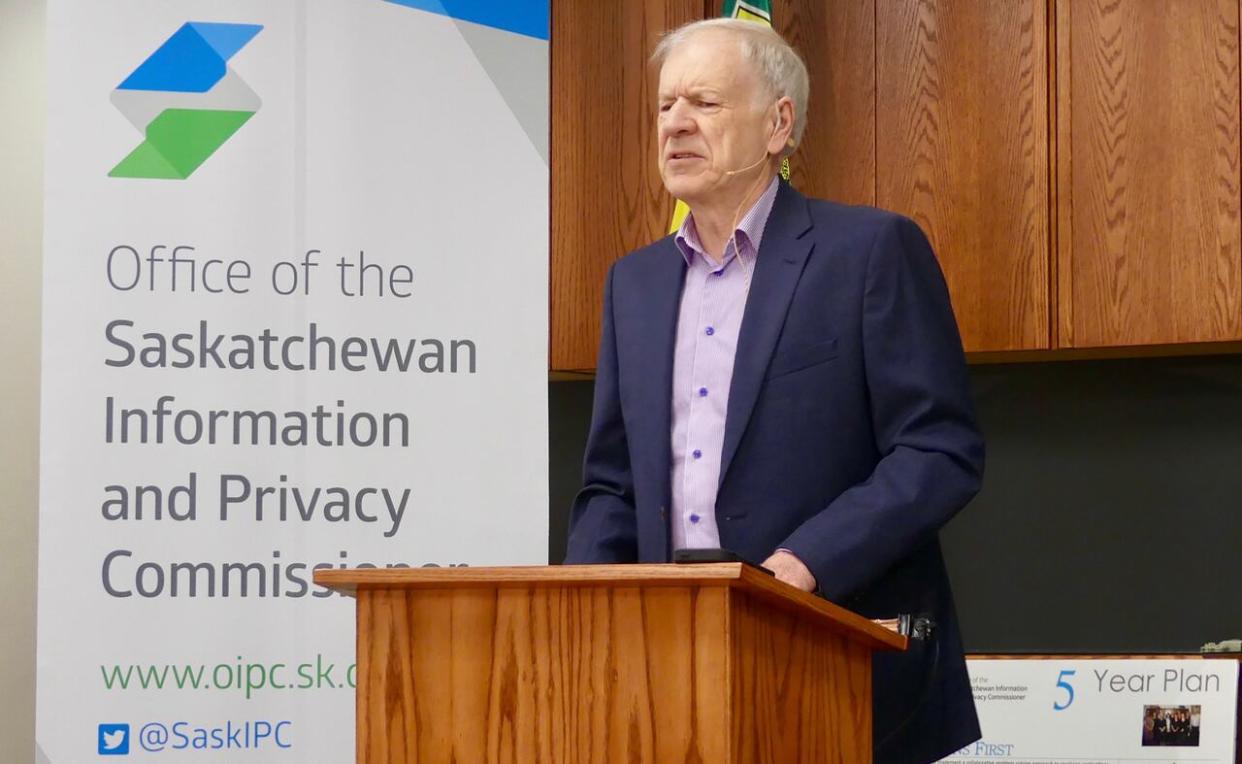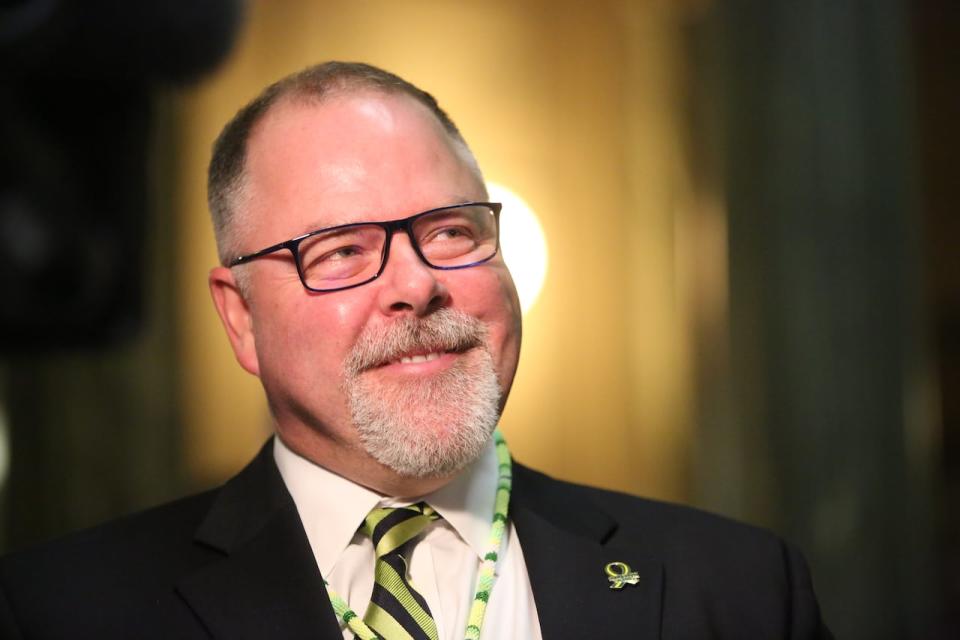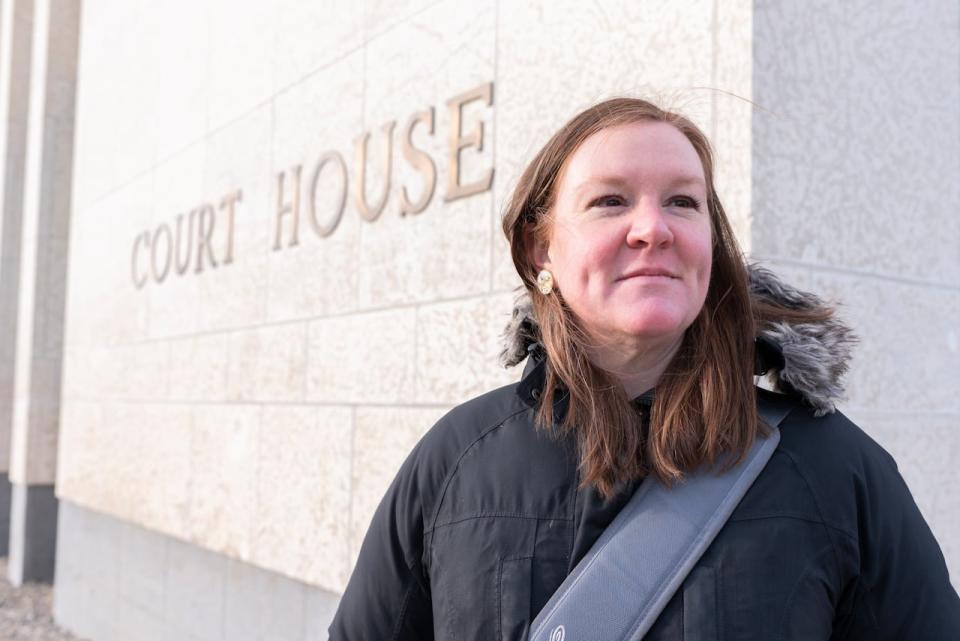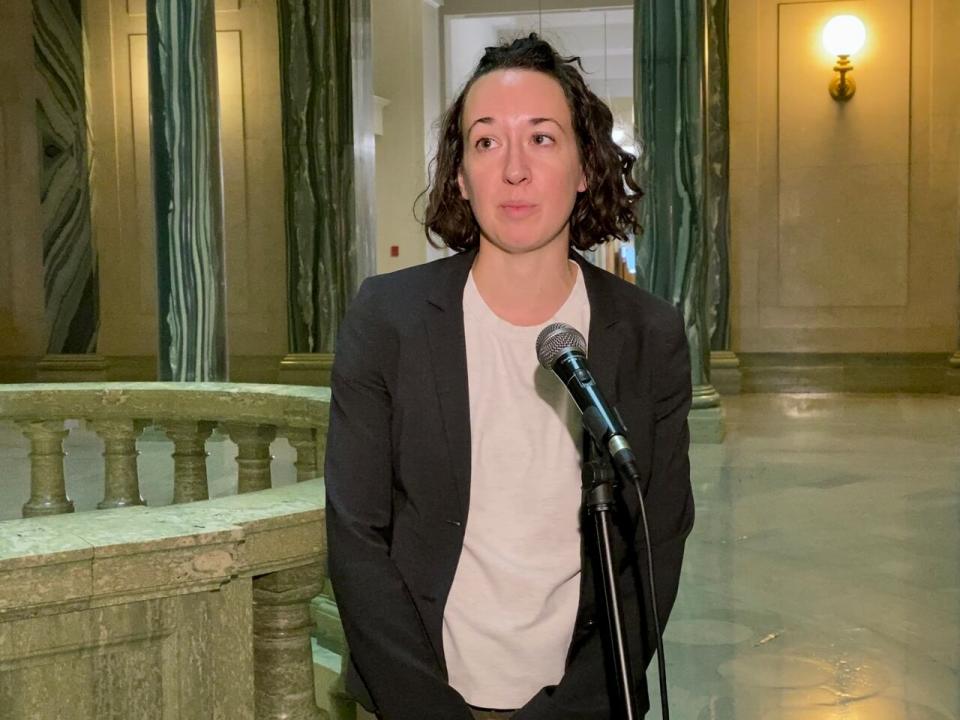Sask. privacy commissioner says he should have power to make government release info

Saskatchewan's privacy czar says his office should be given the power to force government agencies to release information in an overdue update to the province's transparency laws.
CBC News spoke to information and privacy commissioner Ron Kruzeniski after publishing a story revealing the Saskatchewan Health Authority (SHA) refused to release a former CEO's resignation letter against Kruzeniski's advice.
Kruzeniski said he doesn't comment on individual cases, but that he believes the province's access to information legislation is in dire need of a makeover to prevent it from stifling the public's right to know.
"The broader issue is: is it time to think about modernizing the legislation? And I do believe it is," Kruzeniski said.
Access to information laws allow any member of the public to request government records, within certain exemptions.
But Saskatchewan's laws put government agencies themselves in charge of what they ultimately disclose.
Kruzeniski's office can review requests and make recommendations, but he has no power to force agencies to release information and they face no penalty for refusing to do so.
In December 2021, CBC Saskatchewan filed a request for documents related to the sudden departure of SHA CEO Scott Livingstone, including his resignation letter. The SHA refused to release it.

Scott Livingstone abruptly resigned as the Saskatchewan Health Authority's CEO in November 2021. (Bryan Eneas/CBC)
Kruzeniski, in a review, said Livingstone's right to privacy was outweighed by public interest in the matter and that the SHA didn't follow the law.
But the SHA ignored his recommendation and withheld the letter anyway, saying it disagreed. The process took nearly two years.
At that point, an applicant's only option is to go to court, something Kruzeniski said takes months and usually costs between $15,000 and $20,000.
Emily Eaton, a professor at the University of Regina, ended up taking that route after her own school refused to release records about how oil companies were funding academic research.
Eaton ended up winning her case with the help of more than $12,000 she crowdfunded. She said she had the advantage of being a media savvy academic whose case had already received national media attention.
"A private citizen is not going to have access to those same things," Eaton said. "It effectively sort of renders the power of the legislation null if an authority can just simply say they don't agree with the expert's interpretation of the law."

Emily Eaton, a professor in the department of geography and environmental science at the University of Regina, had to take the school to court to get records about how oil companies were funding academic research. (Michael Bell/The Canadian Press)
Government spokeswoman Ariane Whiting said the province is not considering any changes at this time. She said Saskatchewan's system is similar to other provinces, like New Brunswick.
But Kruzeniski said Saskatchewan is increasingly a national outlier. Provinces like B.C., Ontario and Quebec all have mechanisms that allow commissioners to force government bodies to release public documents.
Saskatchewan's own system is receiving national attention. A recent analysis by The Globe and Mail indicates Saskatchewan government bodies may be shirking the rules frequently. That newspaper examined 105 disputes in 2022 and found Kruzeniski disagreed with how public bodies addressed those requests 75 per cent of the time.
The government claims those agencies usually correct course after the review stage. Whiting said public bodies complied at least in part with the commissioner's recommendations 78 per cent of the time.
But Kruzeniski's own office found the rate of full compliance was far lower. In his latest annual report, he said government bodies only fully complied 47 per cent of the time.
Nicole Sarauer, the house leader of Saskatchewan's Opposition NDP, said her party has repeatedly run into brick walls when trying to use those laws to hold government accountable.
"It benefits government for the legislation to be as it is, and for the commissioner to not have the power to enforce orders, because it allows them to be less transparent than they should be," Sarauer said.

Saskatchewan NDP house leader Nicole Sarauer says transparency is good for both government and Opposition. (Kirk Fraser/CBC)
Sarauer said her party would avoid that temptation if it were elected.
"Transparency in government, I think, is beneficial to both government and Opposition because it keeps government honest," Sarauer said.
It is not the first time Kruzeniski has called for change.
In 2015, he penned a list of 35 amendments to a law that hadn't been updated since 1992, before the advent of the digital age.
The government passed a handful of amendments in 2018, but didn't grant his office order-making power, as he recommended.
Kruzeniski has now entered the final year of his second term. He said one of his last acts in the job will be to make a new set of recommendations in the hope that the government changes tack.
"If we don't do this, you may be having a similar interview with my successor," Kruzeniski said.


